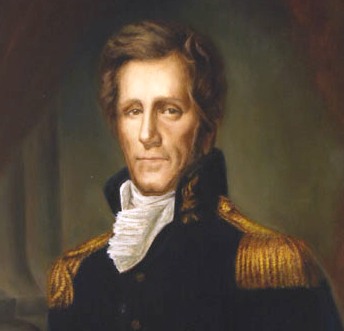There had been speculative history written as far back as antiquity, but sporadically and was not seen as a genre proper unitl the 19th century. The French were the earliest in the 19th century to start seriously writing speculative fiction, mostly about worlds where Napoleon had not died of his wounds, some seeing him go on to further victories and some seeing him being tried by the victorious powers and executed.
In the English-speaking world, however, the real birth of speculative fiction did not take place until after the Slaver Uprising. The earliest work of literary note was written by a Southron expatriot
Carl Heartwell. Heartwell had been an ardent Confederationist, and migrated to the United States after the collapse of the Confederation. His work cleverly postulated the failure of our American Revolution, leading to the death of almost all the familiar American founding fathers, and the subsequent retained loyalty of the 'Yankees' of Northern America whereas an expanded British Southern America under the leadership of a young and dashing Andrew Jackson, among others, breaks away from the British Empire and forms their own independent nation. The author saw his slavocrat republic as a realization of Plato's vision of a republic, and thus the name of the work,
Plato's America. While seen by some as a simple exercise in wishful thinking, most acknowledge it as the first pioneering work in speculative fiction.
The other two major works of 19th century speculative history were from a different political perspective and took a different tack.
American David Weber wrote the quirky epic,
The Course of Human Events. It foresees a more amicable separation between British North America and the United Kingdom, if not the British Empire per se, in his work where a North American kingdom is founded peacefully under a scion of the British throne. The New World kingdom thus created takes its name from the Pacific Province of the Dominion of Southern America, Albion.
Whereas Weber's work has its quirks (as do most of the genre), the last great speculative history work of the 19th century,
A Loyal North, was published right after the Panic of 1881. Penned by Cantab Dr. Thomas Anderson, this British work of speculative history may have been partly inspired by the opening premise of The Course of Human Events, though the author never verified this. However, Anderson's work takes quirky to whole new levels and in fact interjects this work of speculative history with elements of scientific fiction such as projecting the events of the tale far into the 20th century, and having interludes with a history jumping team of scientists and soldiers exploring this timeline, labeled timeline 'L', clearly referring to the Loyal North title. The loyalty of this North is somewhat questionable as again there is a not entirely amicable break between British America and the United Kingdom. One interesting point here is the incorporation of the Washington family into the cadet branch of the British Royal Family which becomes the Royal family of this New World Kingdom. While the story starts off initially with a rather innocuous premise, there is a continued undertone of foreboding and darkness to the tale. Some critics have seen the work as an indictment of Liberalism and thus a subversive pro-Korsgaardian work, though other critics have suggested that it is actually a cautionary tale of the excesses of all political system. Most agree, however, that it is best seen as a rip-roaring, rich, complex tapestry of a tale. Of particular note of interest is the extrapolation of the old British Colonial borders to rather extreme extents.



